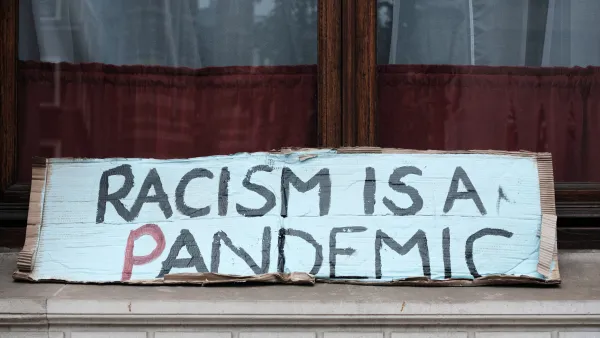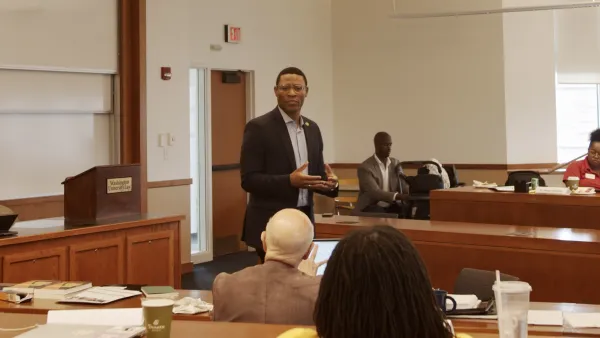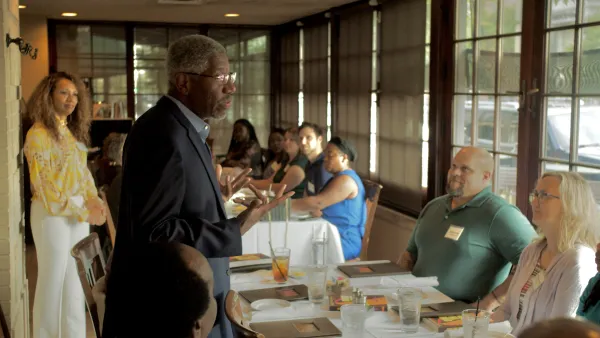“I can’t breathe.”
As members of the Department of African & African American Studies at Washington University in St. Louis, we know the gravity of this statement. These are the last words of Eric Garner (2014) and George Floyd (2020), two victims of contemporary anti-Black police fatalities. These three words, while a heavy expression of bodily exhaustion and loss of air, also name the strangulation and the hold of white supremacy in what we know as the “carceral state.” America has never been able to free its Black citizens, or make them feel free at all; the imprisoning conditions are blatant, especially in the historical practices of discrimination, surveillance, and the killing of Black bodies and communities. This is what has called thousands of people to the streets of cities across the world, to confront and challenge long-standing American crimes against Black humanity.
“I can’t breathe” captures not only the last words of our beloved, but also speaks the truth of so many in the Black community who are made most vulnerable to and suffer with COVID-19. In the United States, the COVID-19 mortality rate among African-Americans is 2.4 times higher than it is for white people. In the state of Missouri, 38% of the people in Missouri who have died from COVID-19 are African American, but African-Americans only make up 12% of Missouri's population. Beyond the United States, COVID-19 has adversely affected African-descended populations globally. Even with examples of thoughtful and effective governmental responses to the pandemic in Africa and the Caribbean, the longstanding economic crises across the global south, tied to issues such as exploitative trading relationships and dependence upon tourism, render black populations extremely vulnerable to the effects of the pandemic, far beyond infection.
As we witness the recent murders of George Floyd, Nina Pop, Atatiana Jefferson, Ahmaud Arbery, Tony McDade, and Breonna Taylor we are reminded of the long-standing pandemic of anti-Blackness that plagues all of our houses. These are not the first of anti-Black deaths; neither will they be the last. The people commemorated in this list do not exhaust the record of unnamed and unrecognized Black bodies who have been subjected to state violence. Black Cis/Trans-identified women and men are suffering under a virulent strand of white supremacy, white oppressive masculinity, and heteropatriarchy. For too long, America has simply watched and waited for the magic wand of “integration” or “diversity and inclusion” to fix its sedimented ills. We know this will never be enough.
The United States lacks the policies and political imagination that can advance Black livelihood and too often ignores historical lessons learned from its marginal communities. We know that many are tired of anti-Black ideologies, institutions, and government officials. We are tired, as well. There seems to be a never-ending cycle of anti-Black violence. But we will never stop believing in the capacity of African-descended people to rise up and face not only the challenges of this hour but the truths of our history: we are always more than what is said of us and are never defined by what is done to us.
We are communities made by a Black imagination of limitless ingenuity and creativity. As a department, we will continue to do our part to create a better world for Black people and all marginalized world-citizens. From this tradition, we know that our responses to the pandemics we face in this hour will prompt many responses: from political rebellion to the writing of books, the crafting of art to the choreography of dance, as well as community rebuilding and uplifting. For more than 50 years, through Black study and activism, this academic unit and its faculty have been consistently committed to building a university and a world that can better attend to the lives of African-descended people locally and globally. This mission is permanent.
Therefore, the Department of African and African-American Studies at Washington University in St. Louis expresses its full support of those who protest and stand in solidarity with their demands for social and racial justice within the U.S. and other places in the African Diaspora. These demands extend beyond the police to all institutions which have historically ignored or advanced anti-Black violence. Black Lives Matter. Black Women’s Lives Matter. Black Queer and Trans Lives Matter.
In the words of the great poet Margaret Walker, “Let a new earth rise.”
Signed,
Members of the Faculty of African & African-American Studies
Washington University in St. Louis
Photo by Ehimetalor Akhere Unuabona on Unsplash



